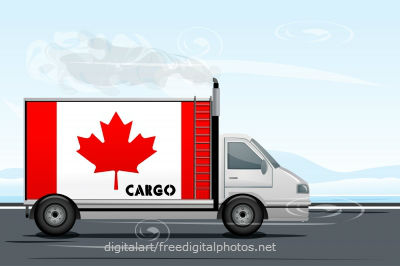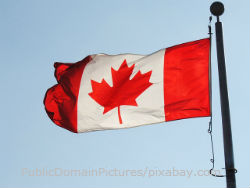 The act of moving is pretty universal in that anywhere you go, you'll encounter people that have moved, whether it's from the next town over or from halfway across the world. Moving is a fairly broad description of the often complicated and highly involved process of relocation, and while many aspects of the moving process remain the same no matter where you are, there are individual differences and nuances in many parts of the world that are important to take note of when you are getting ready to move. When you move in Canada, there are a few specific things to take note of and remember -- things that are unique to the country and things that can help make the moving process a lot easier when it's all said and done. Keep all of your moving-related receipts
When you dive into the moving process, you're likely going to be bombarded with an army of expenses, from renting a moving truck and a storage facility to house some of your belongings, to hiring a moving company and buying packing materials and other supplies.
The smartest thing for you to do, beyond making a moving budget and tracking all of your moving expenses carefully, is to keep all of your receipts from your moving-related purchases and putting them in a safe place where you're sure you won't lose them.
In Canada, you may be allowed to claim these expenses on your income taxes at the end of year by reporting them to the Canada Revenue Agency. The only stipulation regarding whether or not you'll be eligible to receive a tax break on your moving expenses is the distance of your move. According to the CRA, you must move more than 40km closer to your new school or place of work in order to receive the income tax break.
Research your new home
Each province and territory within Canada has its own individual housing and renting laws and regulations, so the smart thing to do is to research the province you will be moving to before you begin the moving process and familiarize yourself with any laws that specifically pertain to your move.
Of course, if you are only moving within the province you are already living in, then you should already be familiar with these laws and regulations and you should have no problem easing into your move as smoothly as possible. In that case, no research is needed on the specific laws that pertain to moving, but it's still a smart idea to do a little reading up about your new town.
Register your new address with the Canadian Post
When you move, one of the most important changes that you have to make is changing your address. Almost everything you do is connected to your home address in one way or another: your job, your bank account, your car payments, your loans, your driver's license and many more things you probably don't even realize.
In Canada, changing your address when you move is especially important because of how many different aspects of your life are affected by it. But fortunately for Canadian residents, there is a simple way to change your address quickly and efficiently through the Canada Post.
The Canada Post has an official service for people who are moving and changing addresses to register their new address online at least 10 days before you move.
By registering your new address with Canada Post, they will take care of everything for you and make sure that all of your mail is redirected to your new home address, a vital step in avoiding missing out on any important bills or packages that are being mailed to you.
While the moving process might have a lot of similar elements no matter where you are in the world, you also have to be aware of region- and country-specific nuances that may affect you when you're getting ready to move. However, if you pay attention and do all your due diligence, you will make your life a whole lot easier in the long run. |